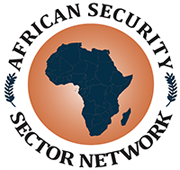Regional Nodes
The ASSN is governed by an Executive Committee (ExCo) of 13 members, including a Chairperson, a Vice-Chairperson and an Executive Secretary. The ASSN is serviced by a Secretariat, which coordinates the network’s affairs from its headquarters in Accra, Ghana. Its functions include the day-to-day administration of the network, coordination of core programmes, information management and logistical facilitation. The Secretariat is entirely staffed by African professionals under the leadership of the Executive Secretary.
The ASSN also has Regional nodes, based on the geopolitical and linguistic regions of Sub-Saharan Africa. In each Regional node, one or two member organisations form the centrepiece of the ASSN’s regional activities. The role of the Regional nodes is to:
- Serve as the nodal point and, if necessary, host ASSN activities in a region.
- Liaise with members of the ASSN in a region.
- Promote knowledge about the work of the ASSN to the public and stakeholders in a region.
- Contribute to the development of proposals for ASSN’s engagement in regional SSR processes, or in SSR processes being carried out by states in that region.
These regional nodes are:
East Africa and the Great Lakes Region
Regional Node: Security Research and Information Centre (SRIC)
Regional Node: Security Research and Information Centre (SRIC)
Location: Nairobi, Kenya
Regional Coordinator: Lt Col (Rtd) Jerry W. Kitiku
The Security Research and Information Centre (SRIC) is an independent non-profit think-tank that provides data and information on human security and security sector dynamics in Kenya, the Great Lakes region and the Horn of Africa. Based in Nairobi, Kenya, SRIC's mission is to influence and contribute to positive change in the security sector dynamics in its three geographical regions of focus. SRIC pursues this mission by conducting research, facilitating policy dialogue aimed at the transformation of the security sector and providing verifiable data and information on key security areas and the trends in crime and armed violence in East Africa. It also maintains a dedicated database that makes this data and information easily accessible to government officials, researchers and the media.
Southern Africa
Regional Node: African Policing Civilian Oversight Forum
Location: Cape Town, South Africa
Regional Coordinator: Mr Sean Tait
The African Policing Civilian Oversight Forum (APCOF) is a Not-for-Profit Trust working on issues of police accountability and governance in Africa. APCOF promotes the values which the establishment of civilian oversight seeks to achieve; namely to assist in restoring public confidence, developing a culture of human rights, promoting integrity and transparency within the police, and nurturing good working relationships between the police and the community. While APCOF is active in the field of policing, its work is located in the broader paradigm of promoting democratic governance and the rule of law.
West Africa
1. Regional Node: Fondation pour la Sécurité du Citoyen (FOSEC)
Location: Ouagadougou, Burkina Faso
Regional Coordinator: Dr Emile Ouédraogo
The Foundation for Citizen Security (FOSEC) is a civil society organisation, whose vision is to contribute to the creation of a society where security, tolerance, peace and solidarity prevail for the emergence of collective prosperity in Burkina Faso. More concretely, this organisation's mission is to:
- Contribute to building the capacity of community structures and civil society organisations working in the field of security.
- Promote civic engagement with a view to human security and sustainable development.
- Contribute to the eradication of violence against women and ensure their wellbeing.
- Play the role of civil society in Security Sector Reform and Governance (SSR/G).
- Contribute to mediation and conciliation in inter and intra-community crises.
Français
La Fondation pour la Sécurité du Citoyen (FOSEC) est une organisation de la société civile, qui a pour vision de contribuer à la création d’une société où règnent la sécurité, la tolérance, la paix et la solidarité pour l’émergence d’une prospérité collective au Burkina Faso. Plus concrètement, cette organisation a pour mission de:
- Contribuer au renforcement des capacités des structures communautaires et des organisations de la société civile œuvrant dans le domaine de la sécurité.
- Promouvoir un engagement citoyen dans une perspective de sécurité humaine et de développement durable.
- Contribuer à l’éradication des violences faites aux femmes ainsi qu’à leur prise en charge.
- Jouer le rôle de la société civile dans la R /GSS.
- Contribuer à la médiation et à la conciliation dans les crises inter et intra-communautaires.
2. Prisoners Rehabilitation and Welfare Association (PRAWA)
PRAWA is a non-governmental organisation aimed at promoting Security, Justice and Development in Africa. It was established in 1994, and in 1998 secured observer status with the African Commission on Human and Peoples’ Rights. The organisation has three major programme components namely, Security and Justice Sector Reform Programme Component, Social Development and Rehabilitation Programme Component and Research and Documentation Programme Component.
It utilises the following strategies in the implementation of its programmes:
- Training and Capacity Building (TRACAD)
- Research and Advocacy
- Human Rights Monitoring
- Rehabilitation, Care and Support Services (RECASS)
- Community Justice Programme and Engagement (COJUP)
